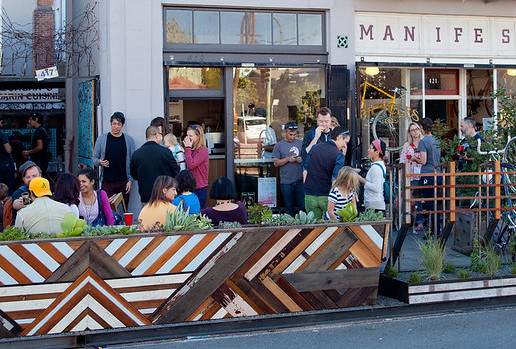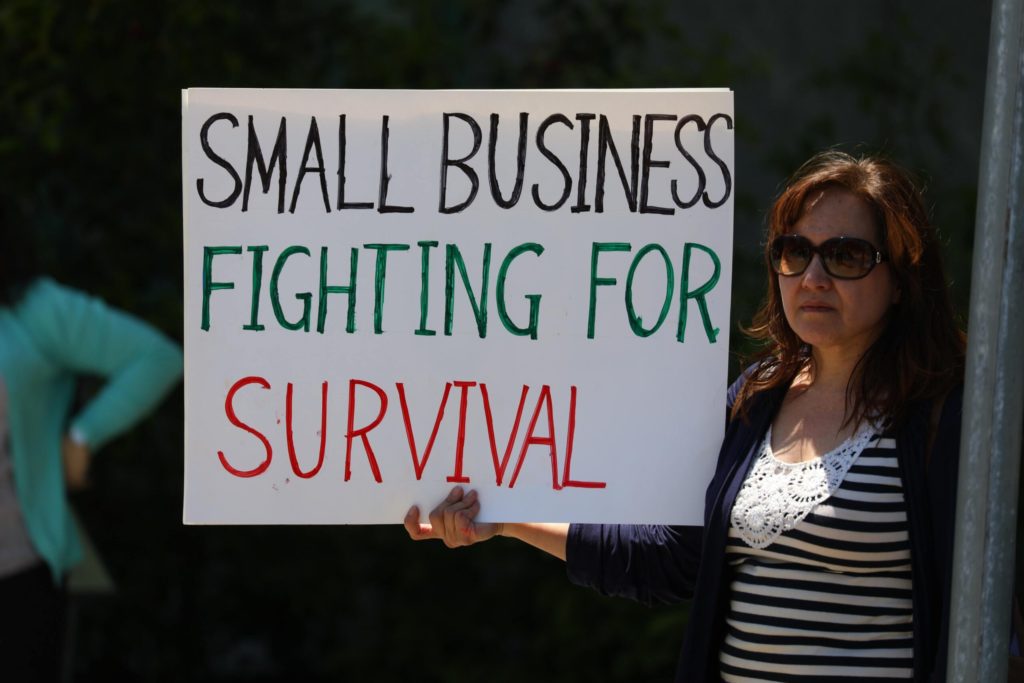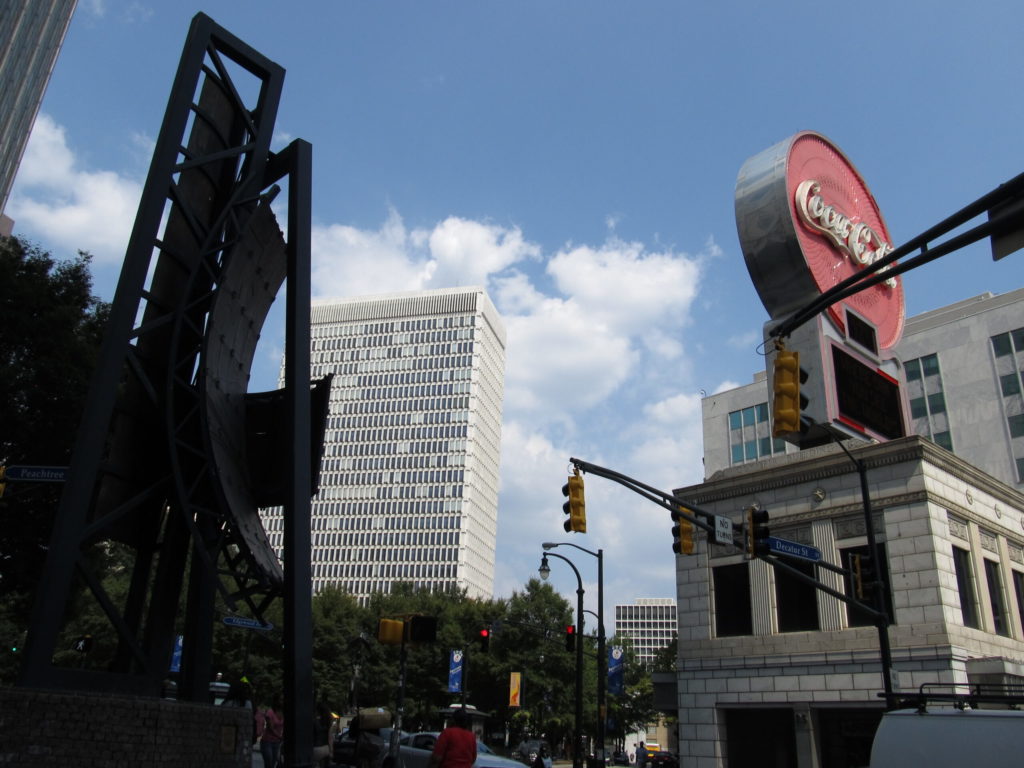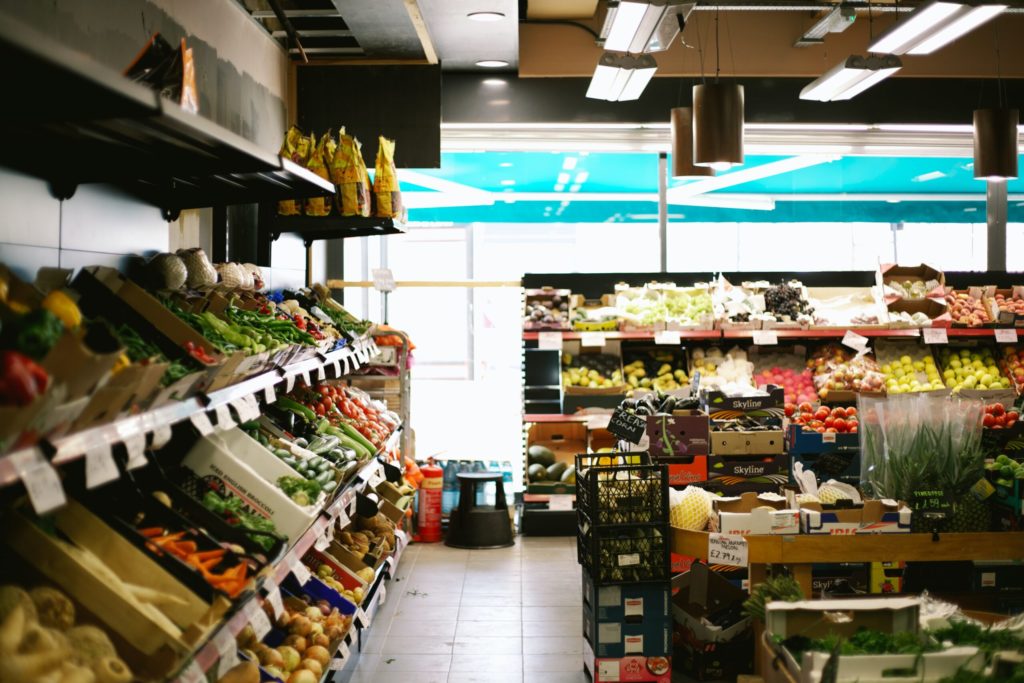
Building a Competitive Workforce for a Post-Covid DC
COVID-19 has greatly disrupted the regional economy in Washington D.C., leaving thousands of residents unemployed and forcing many businesses to close or dramatically shift their operations. About 150,000 people have lost jobs in the hard-hit hospitality and leisure industries, creating a critical need for residents to be retrained for jobs... Read more

Building an Inclusive and Resilient Economy by Supporting LA’s Minority & Women-Owned Small Businesses
Small businesses play a critical role in the US economy as employers, sources of innovation, and community centers. But small businesses, particularly those owned by women and people of color, have been uniquely vulnerable to the economic fallouts of the recent COVID-19 pandemic. Unfortunately, Los Angeles has been a hotspot... Read more

Reimagining the Right of Way to Support an Equitable Community Recovery
The COVID-19 pandemic threw daily life into a state of upheaval, with lockdowns, social distancing guidelines, travel bans, and digital work becoming a new norm. While these measures largely worked to preserve the health of many Americans, bold actions needed to be taken to curb the economic and social impacts... Read more

Expanding Pathways into High-Quality Jobs by Aligning Workforce Investments
In the Bay Area, COVID-19 has dealt a harsher economic blow to the region than initially estimated. Nearly 5,000 jobs were lost in January 2021 alone. In the City of Oakland, the unemployment rate has spiked to 9.6%, after having been at its lowest rate in decades before the pandemic... Read more

Preparing for the Future of Work in a More Equitable Way
In Houston, the economic fallout of the Covid-19 pandemic has resulted in one of the highest unemployment rates of any metropolitan area in the nation and has exacerbated economic disparities already felt by residents in many Houston neighborhoods. Before the pandemic, 80 percent – or 36 - of Houston’s 45... Read more

Community-Driven Solutions to Economic Recovery
To respond to the growing impact of Covid-19, the city and county of Durham launched a Recovery and Renewal Task Force in May 2020. The task force has prioritized its work using a three-phased approach to the pandemic and its longer-term consequences, addressing public health, economic, and mental and behavioral... Read more

Increasing Access to Employment Opportunities for Every Milwaukeean
In Milwaukee, more than 17 percent of Black residents are unemployed, compared to more than 4 percent of white residents. A key to closing this widening economic gap is giving individuals more workforce development opportunities and access to job prospects. Employ Milwaukee, the local workforce development board serving Milwaukee County,... Read more

Small Business Supports to Build Wealth in Atlanta’s Black and Brown Communities
In Atlanta, Black and historically underserved communities located south and west of the city have been economically stagnant despite growth in other parts of the city. The economic recession resulting from COVID-19 poses an additional threat to these communities, leaving them susceptible to even larger outcome gaps. Specifically, the pandemic... Read more

Investing in Food Ecosystem to Provide New Pathways to Employment
In Houston, an estimated 725,000 people are food insecure, 500,000 of whom are living in federally designated districts where the closest supermarket is more than a mile away. These districts are found predominantly in the city’s historically underinvested communities, neighborhoods in which economic inequity has endured for generations. Exacerbating these... Read more

Expanding Digital Access to Increase Educational Outcomes
While access to wifi and high-speed internet are often taken for granted, in Houston, more than 142,500 households do not have a computer, and over 267,000 households lack broadband internet access. These communities are often historically underinvested and present significant hurdles for residents, preventing them from harnessing the power of... Read more
